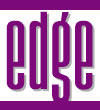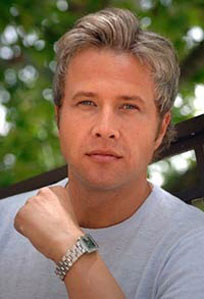News
Film documents Mormon role in gay marriage debate
by Jennifer Dobner - Associated Press
Monday, November 16, 2009

Himself gay and Mormon, Cowan clashed with his family over his sexual orientation and the beliefs of their faith, but it was a conversation between him and a sibling about her support of Proposition 8 cemented his commitment to make the film: "8: The Mormon Proposition."
"I thought, if this is the dialogue in my Mormon family, then what is like in other Mormon households," the Miami-area filmmaker and former Utah television journalist said. "If this is the pain I feel over Prop. 8 and other Mormon efforts to quash (lesbian, gay, bisexual and transgender) rights, what is the pain of others multiplied all over the world?"
While the 80-minute documentary is still in production, a trailer posted on the Internet has caught the eye of both sides of the debate, viewed by roughly 70,000 people in its first 78 hours online. And the Web site that hosts the video has had nearly 28,000 visitors since it went online last month.
 |
| Filmmaker and gay Mormon Reed Cowan (Source:www.affirmation.org) |
Cowan contends that the church was the most influential force in the campaign and paints the faith’s theology and culture as historically anti-gay.
Internet commentary on the trailer is divided.
Depending on the source, the movie is either an emotional and scathing indictment of The Church of Jesus Christ of Latter-day Saints, or an unfair characterization of the Utah-based church’s beliefs and motivation for political involvement. The church was part of a coalition of faiths and conservative groups that pushed for approval of a gay marriage ban in California’s constitution.
Church officials have seen the trailer and other online materials about the film, LDS spokeswoman Kim Farah said, and "it is obvious that anyone looking for balance and thoughtful discussion of a serious subject will need to look elsewhere."
Like many faiths, Mormonism defends traditional marriage as an institution ordained by God that is central to a healthy society. The church has consistently worked against legislation to legalize gay marriage since the 1990s. Last week, however, church leaders endorsed a pair of Salt Lake City ordinances that make it illegal to discriminate against LGBT persons in employment and housing.
Narrated by Academy Award winning screenwriter Dustin Lance Black - also gay and raised Mormon - the film chronicles the campaign and includes personal stories from straight and gay Mormons, including newlyweds Tyler Barrick and Spencer Jones, who married in San Francisco on June 17, 2008, the first day same sex marriage was legal in California.
The film touches on gay suicide and homelessness, which many believe occur at higher-than-average rates among gay Mormons and highlights the strong opposition to gay rights from the Utah Legislature and lobbyists who are predominantly Latter-day Saints.
It also draws on past statements of former leaders and efforts to cure homosexuality with electroshock therapy at the church-owned Brigham Young University.
Mormon church officials appear in the film in footage obtained through other filmmakers, media outlets and in a church-produced video that appeared on the Web.
Cowan said he "begged" for church participation - through both official channels and personal connections - but was rejected. "I got an immediate no," he said.
Alex Nibley, a Utah filmmaker and digital media instructor said the trailer’s powerful, high-quality footage promises an emotional look at it subject. Still, he said, it appears to fit within the typically polaraized spectrum of film takes on the Mormon church - most either that promote the faith or attack its views.
"I suspect that the impact will be to confirm certain ideas that people have about the church," Nibley said. "It may expand some perceptions in the public at large, but it will probably not shake the faith of a lot of those who aren’t going to pay much attention to it."
Cowan said his goal for the film was to document what he believes is a crusade against gay people and to illustrate that the faith operates as both a church and a political action committee.
